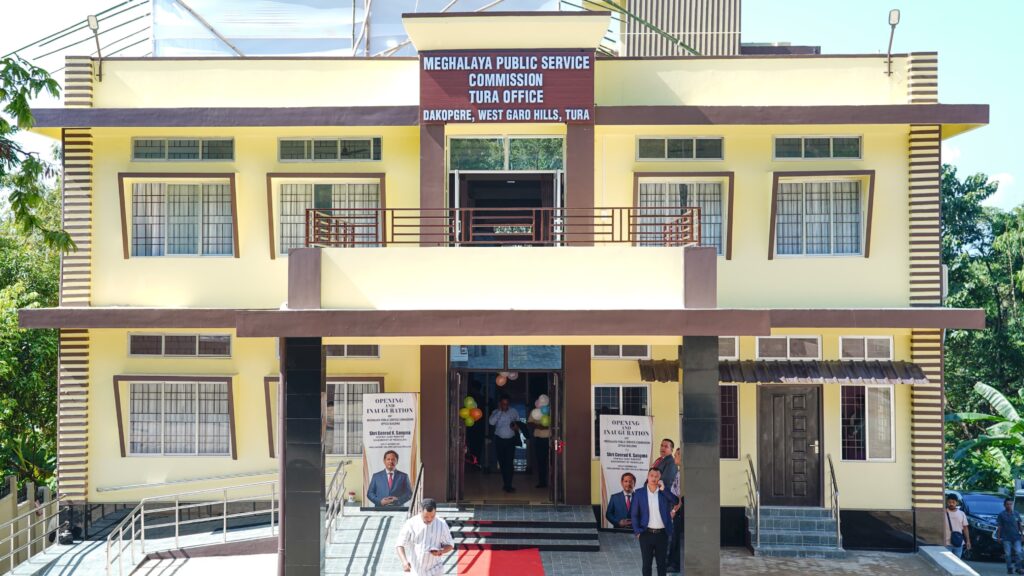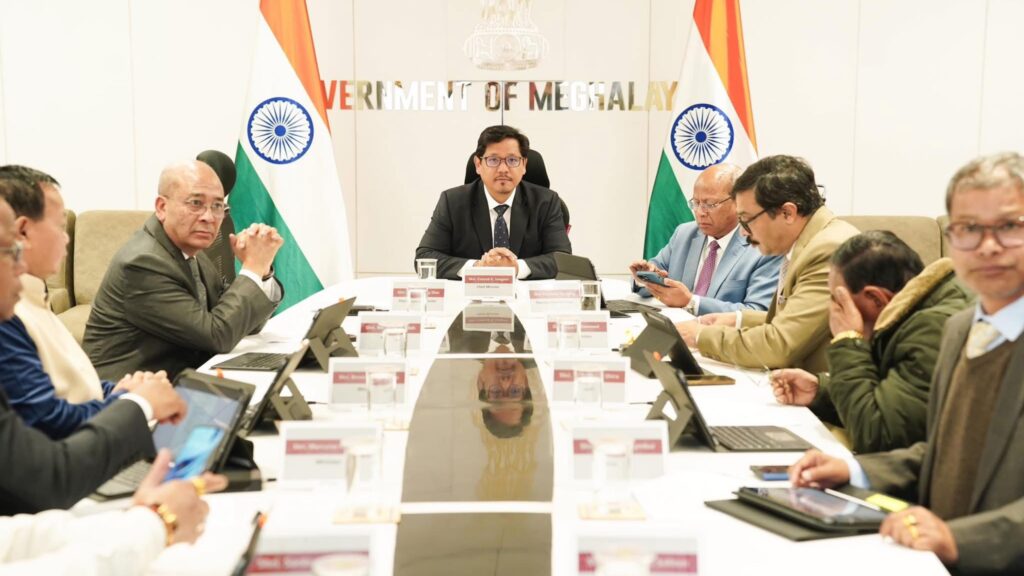Tura, November 8 : In a landmark move aimed at decentralising public service recruitment and empowering youth in the Garo Hills region, Chief Minister Conrad K. Sangma inaugurated the new office building of the Meghalaya Public Service Commission (MPSC) at Dakopgre, Tura, West Garo Hills. The event was graced by Thomas A. Sangma, Speaker of the Meghalaya Legislative Assembly, as the Guest of Honour.
Addressing the gathering, Chief Minister Conrad K. Sangma said the new MPSC office would significantly ease challenges faced by aspirants from Garo Hills, who previously had to travel “10 to 15 hours overnight to Shillong” to sit for examinations.
“Many candidates would arrive tired and go straight into the exam hall without rest. With this new facility, students can now appear for their exams and interviews right here in Tura,” he said.
The Chief Minister noted that the absence of a local examination centre had long been a disadvantage for candidates from Garo Hills. “This is one of the most important offices to be inaugurated. Its impact on the youth and their future will be immense,” he added.
Marking a new chapter in Meghalaya’s recruitment process, the Chief Minister announced that the first MPSC examination in Tura will be held on November 14, 2025.
He also revealed that the government plans to expand similar facilities to the Jaintia Hills, ensuring equal access for candidates across the state.
In his remarks, Speaker Thomas A. Sangma hailed the inauguration as a “landmark moment”, calling it a step toward transparent, accountable, and people-centric governance. He emphasised that bringing government services closer to citizens reflects the administration’s commitment to regional equity and administrative efficiency.
The inaugural programme was attended by Vibhor Agarwal, Deputy Commissioner of West Garo Hills; Abraham T. Momin, Chairman, Tura; and senior officials from the Meghalaya Public Service Commission and other government departments.
The establishment of the new MPSC office in Tura will facilitate examinations, interviews, and recruitment activities for candidates from the Garo Hills region, eliminating the need for long-distance travel to Shillong.








